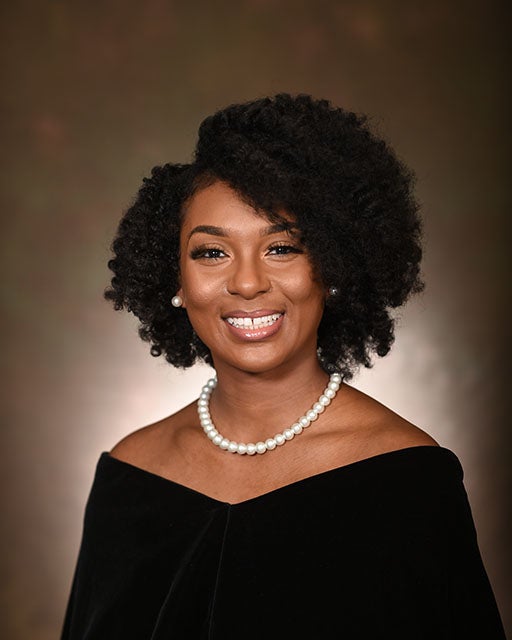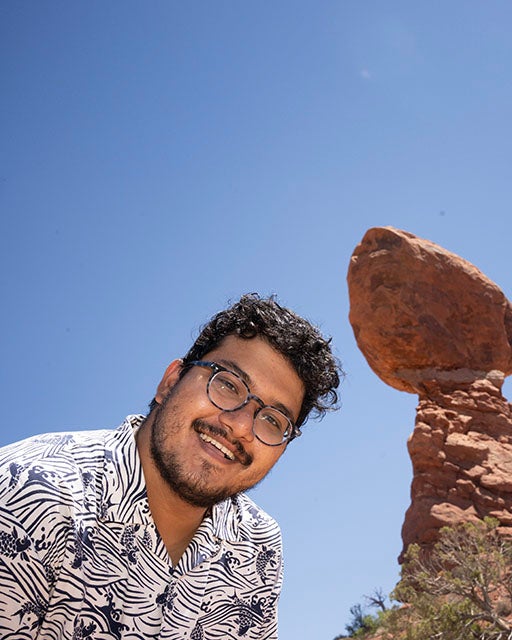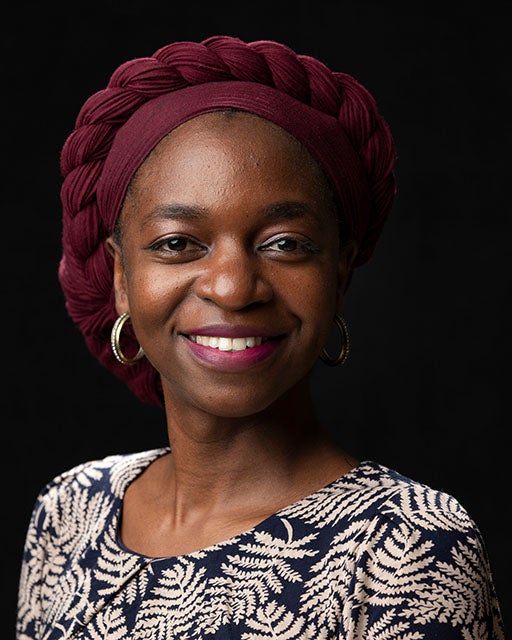UCAR announces 2024 Next Generation Fellows Cohort
Three students selected for prestigious UCAR program that supports the future of science
Oct 28, 2024 - by Audrey Merket
Oct 28, 2024 - by Audrey Merket
The University Corporation for Atmospheric Research (UCAR) has announced the 2024 recipients of the Next Generation Fellowship for 2024. This fellowship is awarded annually to three graduate students from North American universities who are looking to gain experience in three tracks: scientific research; policy; and diversity, equity, and inclusion.
The 2024 recipients are:
“This year, we had the highest number of applicants ever, which made the selection even more competitive,” said UCAR President Antonio Busalacchi. “The caliber of students applying for the fellowship is impressive, and it is an honor to welcome these three new fellows into our organization.”
The two-year UCAR fellowship gives fellows the opportunity to learn alongside leaders in their fields through collaborations and summer research trips to the U.S. National Science Foundation National Center for Atmospheric Research (NSF NCAR) in Boulder, Colorado, or to Washington, D.C. Fellows are paired with a mentor for the duration of their fellowship. While the mentor helps them to identify project goals, the fellows are responsible for leading the work and have the freedom to build interdisciplinary knowledge and collaborations across the NSF NCAR and UCAR community.
Taylor Miller - Policy Fellow

Taylor Miller is a curious, enthusiastic scholar who is persistently pursuing her passion in space weather through a master’s in applied space weather research at The Catholic University of America. While Miller pursues her own dreams, she maintains a strong commitment to helping the next generation pursue careers in STEM by volunteering in public schools and museums and teaching about the significance of science.
For two years, Miller was an Educational Partnership Program scholar with NOAA where she studied the geomagnetic effects of the Sun on whale beachings. Miller also participated in discussions about protecting Alaskan salmon populations and witnessed the intersections of science, public policy, and economic diversity. The experience of listening to the various perspectives helped Miller understand the need for scientists and policymakers to be mindful of a variety of factors when creating policies.
Miller intends to pursue a career as a space weather policy advisor. She enjoys collaborating with different stakeholders and being a bridge between science leaders and policy makers. As a fellow, Miller is excited to learn about ways that scientific research informs and shapes policy.
“My background in science coupled with experience in policy making will help me to advocate for research projects that will serve diverse communities, especially those that are often overlooked,” said Miller. “As a fellow, I hope to not only learn from the current generation, but also to inspire the next generation.”
Fairuz Ishraque - Science fellow

Fairuz Ishraque’s childhood instilled in them a reverence for the intricacies of Earth's dynamic systems. Climate change was never a debate back home—his country was too close to the ocean. A native of Bangladesh, Ishraque grew up a climate refugee in the city of Chattogram. Such a formative experience impacted Ishraque’s academic goals and steered him to where he is today, pursuing a doctorate in Geosciences at Princeton University.
Ishraque’s doctoral research aims to extend our knowledge of Earth’s climate history through ice cores. During the fellowship, they aim to use the Community Ice Sheet Model to better understand million-year-old ice core records from the Allan Hills blue ice area in Antarctica.
“Just as history guides our future, Earth's climate records offer lessons for our warming world,” said Ishraque. “For example, ice cores reveal ancient climate states and how ice sheets responded to past changes, contributing to sea level rise.”
As a fellow, Ishraque hopes to gain a deeper understanding of how to equitably address disasters like the one that changed their life. Ishraque looks forward to collaborating with policymakers and scientists in order to improve the resilience of communities affected by climate change throughout the world, especially in the Global South.
Dorothy Lsoto - DEI fellow

Dorothy Lsoto is the youngest in her family, and a first-generation college student. Lsoto was born and raised in Bugolobi, a neighborhood in Kampala, Uganda's capital and largest city. She wanted to go to school, but frequently missed out on the opportunity due to an inability to afford school fees. It wasn’t until Lsoto’s oldest brother took on odd jobs that she was able to attend school regularly.
Lsoto is pursuing a doctorate in environment and resources at the University of Wisconsin-Madison, where she also earned her Master of Science. Lsoto’s research explores air quality and the persistent colonial urban designs in African cities. Before attending UW-Madison, she was a student of environmental studies at Makerere University in Kampala, Uganda. She later joined the Makerere University Center for Research in Energy and Energy Conservation (CREEC) where she worked on a multitude of international solar and clean cookstove research projects. Beyond her time at CREEC, she worked on entrepreneurial ventures in Kampala in the cookstove, pico-hydro, household solar, and waste management sectors. Often, she was the only woman on the projects, and the experience led to a desire to encourage more women to join the field, bringing her to graduate school.
Lsoto designed and teaches an innovative capstone course for UW-Madison undergraduates: Environmental Studies 600: Air Quality & Equity in an African City. She also contributed to Uganda’s first National Environment Air Quality Standards Regulations and the Kampala Clean Air Action Plan. She is also a contributing author to the forthcoming book, Developing an Intersectional-Consciousness and Praxis: Moving Toward Antiracist Efforts in Higher Education, related to her previous research assistant role under the Humanities Education for Anti-racism Literacy (HEAL) in the Sciences and Medicine.
“I have entered spaces that seemed impossible and it’s my duty to make it possible for others to see themselves in those spaces too,” said Lsoto. “In my experience working with communities, if people do not see scientists who reflect their own backgrounds and experiences, they are less likely to trust and engage with their scientific findings.”
During the fellowship, Lsoto hopes to learn from the experience and knowledge of others so she can design curriculum that is more inclusive. She believes that if her work includes the perspectives of people from different cultures and backgrounds, it will have measurable and lasting change – even after she is gone.